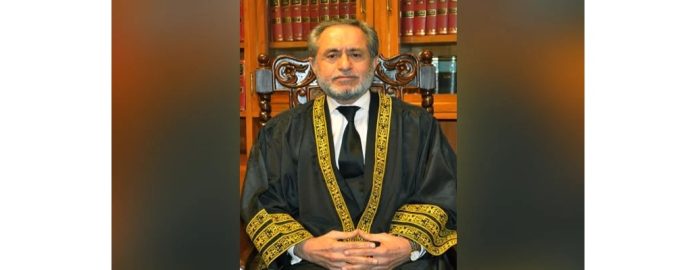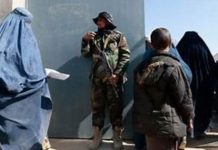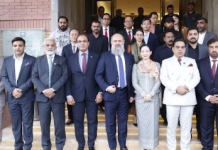If President’s House is attacked, trial will take place in ATC, remarks Justice Mandokhail
ISLAMABAD: Supreme Court Justice Jamal Khan Mandokhail on Thursday questioned the legitimacy of trying civilians under the armed forces’ disciplinary framework, during the hearing of intra-court appeals against military courts’ decisions.
The seven-member constitutional bench, led by Justice Aminuddin Khan, heard the appeals. The bench also included Justice Mandokhail, Justice Muhammad Ali Mazhar, Justice Syed Hasan Azhar Rizvi, Justice Naeem Akhtar Afghan, Justice Musarrat Hilali and Justice Shahid Bilal Hassan.However, Justice Mandokhail raised critical questions, including: “How can an individual not a part of the armed forces fall under its disciplinary code?” He elaborated by comparing it to departmental codes, saying: “If someone works in agriculture, they are subject to its discipline, but how does armed forces’ discipline apply to a civilian?”
In response, Haris said if the law permits, the discipline will apply.
Justice Hilali pointed out the lack of access to FIR copies for individuals held in military custody, while Justice Mazhar probed the grounds on which the Army Act was deemed incompatible with Article 8 by a prior bench.
Then, Advocate Haris said that under specific circumstances, civilians can also fall under the jurisdiction of the Army Act. He further asserted that the court does not have the authority to nullify provisions of the Army Act.
Justice Mandokhail raised a question, asking whether the Army Act renders Section 1 of Article 8 of the Constitution ineffective.
He further inquired if merely contemplating incitement could bring a civilian under the Army Act. He questioned whether civilians could be subjected to the Army Act.
Haris argued that even in military trials, the right to a fair trial under Article 10-A is upheld. Justice Mazhar noted that intra-court appeals against military court verdicts are being heard by a constitutional bench and that the bench can review constitutional points in these appeals.
Justice Mandokhail remarked that if the President’s House is attacked, the trial would take place in an anti-terrorism court. However, will a person be tried in military courts if they attack a military installation, he asked. In response, Haris said that lawmakers decided this through legislation.
Justice Hilali asked if military court trials allow legal counsel for the accused and whether all relevant materials are provided. Advocate Haris responded affirmatively, saying that military court trials do provide both legal representation and necessary evidence to the accused.
Justice Mandokhail posed a hypothetical question: if a soldier murders their officer, where would the trial take place? Advocate Haris replied that the case would proceed in an ordinary court. Justice Mandokhail further asked how someone not subject to the Army Act could be deprived of their fundamental rights.
The top court, in its unanimous verdict by a five-member bench, on October 23 last year declared civilians’ trials in military courts null and void after it admitted the petitions challenging the trial of civilians involved in the May 9 riots.
However, on December 13, 2023, a six-member bench of the apex court — with Justice Hilali differing with the majority — suspended its October 23 order.
The PTI called the Supreme Court’s 5-1 decision to suspend its ruling of nullifying military trials of civilians a “judicial coup”.
The more than 100 civilians facing military trials were those who had allegedly ransacked military installations across the nation on May 9, following PTI founder Imran Khan’s arrest in a graft case.

















